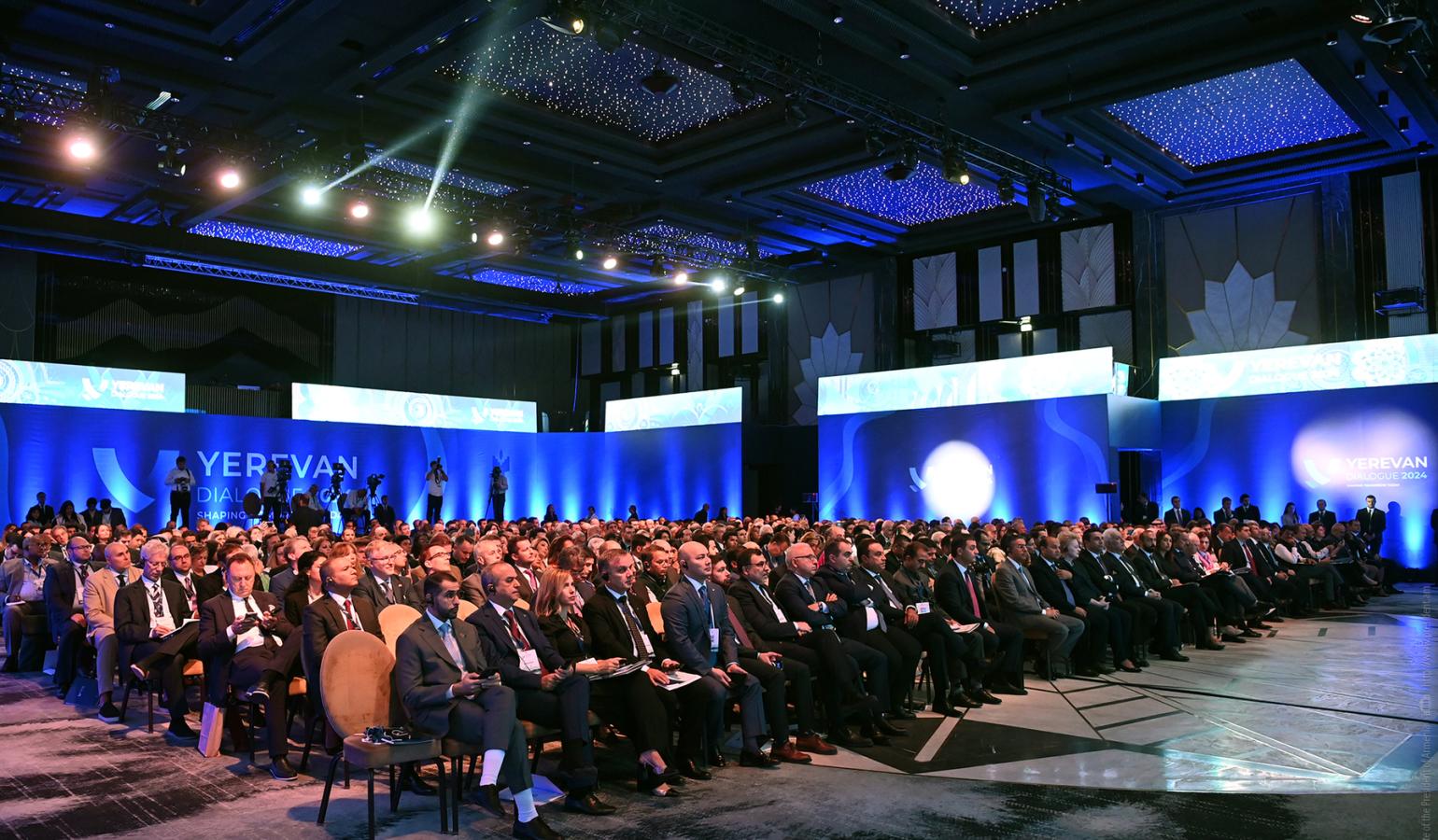
Siranush Sahakyan, Head of the "Center for International and Comparative Law," discussed the events surrounding the "Yerevan Dialogue" forum and Armenia's foreign policy stances in an interview with "Alpha News."
Craig Oliphant, a senior advisor at the Centre for Foreign Policy in the UK, who had participated in an Azerbaijani forum in occupied Stepanakert, was invited to Yerevan to attend the "Yerevan Dialogue" conference held on May 26-27. On May 25, a group of human rights defenders issued a statement demanding clarification from the Ministry of Foreign Affairs (MFA) as to why he was invited to the conference. David Karapetyan, Secretary-General of the MFA, told reporters on May 26 that Craig Oliphant was unable to arrive in Armenia due to a technical issue. Siranush Sahakyan, Head of the "Center for International and Comparative Law," was also among the human rights defenders who signed against the official's participation in the conference.
"I do not rule out that he reconsidered being in the Republic of Armenia given the public's negative reaction. I also do not rule out that the Ministry of Foreign Affairs might have reconsidered its approach to some extent. These are, of course, assumptions, but we at least see an indirect link between the statement of the human rights defenders and his non-participation in the conference," said Siranush Sahakyan.
Sahakyan recalled Azerbaijan's conduct when it invited international organizations to Shushi and then Stepanakert. According to her, many diplomats showed caution, refusing visits and expressing their political stance. "Craig Oliphant did not act from the perspective of human rights, values, or international law. Such people cannot be desirable for the Republic of Armenia and cannot enter and carry out certain activities in Armenia. The 'Yerevan Dialogue' was not a private conference; it was an important event in which the MFA was involved. It is regrettable that the list of invitees could have included people who support Azerbaijan's aggression and crimes against Artsakh and ethnic Armenians. I don't even rule out negligence, that the MFA compiled a list based on some principle and did not pay special attention to individuals' biographies and past activities. But if this is not the result of negligence, here we see that carrying out activities in occupied Artsakh is considered legitimate, because the thesis that Artsakh is Azerbaijani territory is taken as a starting point, and under these conditions, the MFA does not want to sanction the activities of individual persons," emphasized Siranush Sahakyan.
Joshua Kucera, an analyst from the United Kingdom, whose entry into Armenia was previously prohibited, was also invited to and participated in the same conference. There is information that he visited Karvachar during the Artsakh war. It is not clear why the analyst's entry into Armenia was prohibited. David Karapetyan, Secretary-General of the MFA, did not answer this question during a conversation with reporters. The Secretary had stated that Kucera had violated the accreditation rules during the previous event, but this year he was properly accredited and allowed entry into Armenia. According to Sahakyan, explanations regarding such choices should be provided by the MFA itself.
Among the invitees were also the Prime Minister of Slovakia and the Minister of Foreign Affairs of Hungary. Slovakia has sold weapons to Azerbaijan and accused Armenia of "occupying Azerbaijani territories," while Hungary has warm relations with Azerbaijan and extradited Safarov.
"The Republic of Armenia does not consider it problematic, and I believe, with this conduct, it sends a public message that the policies of these countries are consistent with the foreign policy pursued by the Republic of Armenia. Currently, I believe the authorities clearly demonstrate that the positions of other countries regarding Artsakh, even those against international law, cannot affect Armenian-Azerbaijani relations," said Sahakyan.